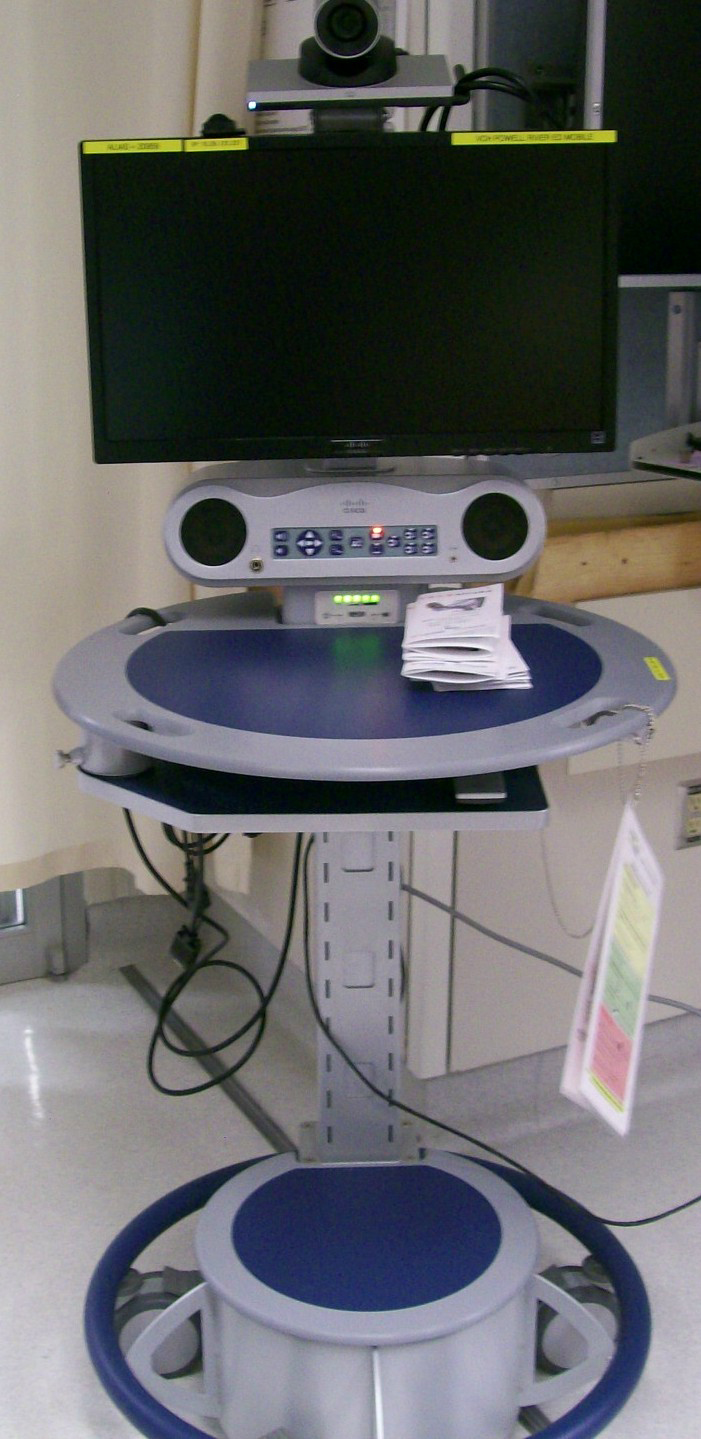Technology and teamwork save councillor’s life
Every summer, Powell River councillor Chris McNaughton and some friends would go fishing at Lang Creek.
“It’s pretty nice,” he says. “And I’ve had some good luck catching salmon out there.”
On August 26th, Chris went out there again, but the day didn’t go as planned like it normally did. Just as he was casting his last line of the day, Chris’s brain experienced a stroke causing him to fall face down into the water. Luckily he was wearing a life jacket (“I promised my wife I’d never take my life jacket off – I’m glad I didn’t”) and a friend saw him collapse and pulled him out of the water, calling an ambulance which raced him off to Powell River General Hospital (PRGH).
“I was in pretty bad shape,” he says. “But I got taken care off.”
Typically, in a small community like Powell River, stroke patients are transported to a big centre like Vancouver where specialists are available to provide the appropriate treatment. But luckily, at the time of the’ stroke, PRGH was installing a Telehealth system, allowing neurologist Dr Philip Teal and his team at Vancouver General Hospital to provide expertise on the administration of the life-saving medication to break down blood clots in Chris’ brain and him for transport via air ambulance to Vancouver.
Multiple benefits

The Telehealth system uses an high-definition monitor and advanced camera that can zoom in on a patient.
The Telehealth system is a live-streaming channel that allows Dr. Teal examine and diagnose patients like Chris many kilometres away. It is equipped with a high-definition monitor as well as magnified lenses and cameras so the doctor can perform tasks such as looking at a patient’s pupils or examining a potentially cancerous mole. The technology allowed Dr. Teal to view Chris’ CT scans, seeing for certain that he had a stroke and prescribing the clot-busting drug Altaphase that saved his life.
“It’s almost like the doctor is there, in the room,” says Lu Wuthrich, acute services manager at PRGH. “Previous to Telehealth we could diagnose a stroke, but couldn’t give the drug. Having that expert on call, the neurologist who’s seen hundreds of strokes, to make that big decision, is really significant.”
Lu says the benefits of the Telehealth system range from life-saving treatment to psychiatric services to education classes.
“And for elderly people, who can’t travel five hours to Vancouver or for someone who had surgery in the city and needs to see a specialist, it’s ideal,” she says.
Because of the quick response and care from the teams in Powell River and Vancouver, Chris was able to return home just before Christmas and was already back in his council chair at a meeting in January.
“I’m really, really happy with the care I received and am still receiving,” says Chris who is goes to the hospital three times a week for physio and occupational therapy. “Dr. Teal, Dr. (Blake) Hoffert, the staff in Powell River…I’m really grateful.”

